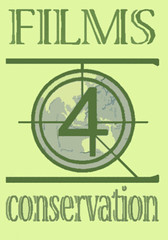Still, most of us have to return to the city from time to time, and that means facing a world where 'leave no trace' is somewhat more difficult to practice at both a micro and macro level, even with the leadership skills gained on trail.
It can seem overwhelming for even the most determined.
That's where a sort of 'Green Economics' is coming into focus from previously unexpected quarters: Green is slowly reaching the markets we all rely on and not only that - Passion comes to play too.
Here are two takes on it we hope will inspire our trail-alumni and others to take the message to political and economic leaders otherwise thought unapproachable:
If you watch this TED Talk below - you might have issues with some of the conclusions drawn, but the bottom line is that the speaker, John Doerr, puts his money where his mouth is. Here's a man with Class A old-school capitalist credentials saying:
"I'm really scared. I don't think we're going to make it".Now that's just the opening line... If you want to see passion, wait for what he closes off with.
Our second example comes from the Council of Foreign Relations who had a talk entitled 'How Protecting Our Environment Will Create Economic Growth' by no less than the Humvee-driving, gasoline-guzzling, cigar chomping Schwarzenegger, Governor of California.
"...environmentalists were also thought of as being kind of weird and strange and fanatics and the kind of serious tree-huggers, as you know. Environmentalists were no fun."A real shift is happening.
[...]
"But who are the fanatics now? They are actually the ones that live in denial -- in economic denial, political denial and environmental denial."- Full transcript or watch in Windows Media Player or Quicktime.
This is Green reaching the markets we all rely on, bringing change.
It is people who you wouldn't otherwise expect to say something 'green' in turn reaching people who would not otherwise give the environment another thought...
We expect you can use a few of the facts from the videos above to create new constructive conversations for change with the people around you.
 Now, if you want to put your money where your mouth is - why not sponsor Ride Earth who are bravely working their way around the world using just pedal power whilst raising awareness of the importance of Wilderness conservation?
Now, if you want to put your money where your mouth is - why not sponsor Ride Earth who are bravely working their way around the world using just pedal power whilst raising awareness of the importance of Wilderness conservation?Any contribution helps us continue our work of developing young leaders with a strong environmental conscience.
You can of course also make a difference right now - share this article on Facebook, Digg, Newsvine or whatever Social Networking tool you use. (Links immediately below).



 Films4Conservation
Films4Conservation Wilderness Foundation TV
Wilderness Foundation TV



















